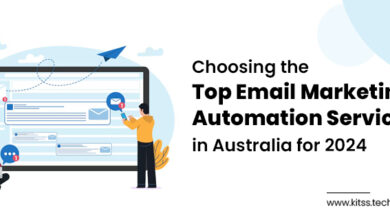What Does a Digital Marketing Agency Do? Everything You Need to Know
In today’s rapidly evolving digital landscape, businesses constantly seek ways to enhance their online presence and effectively reach their target audience. Enter the digital marketing agency – a powerhouse of professionals skilled in navigating the complexities of online marketing. But what exactly does a digital marketing agency do, and how can it benefit your business? In this comprehensive guide, we’ll delve into the world of digital marketing agencies, exploring their roles, strategies, and the value they bring to businesses like yours.
Understanding Digital Marketing Agencies
Digital marketing agencies are entities comprised of professionals well-versed in various digital marketing strategies and tactics. They serve as strategic partners for businesses, helping them navigate the ever-changing digital landscape and achieve their marketing objectives. These agencies bring together experts in search engine optimization (SEO), pay-per-click (PPC) advertising, social media marketing, content creation, email marketing, and more.
Services Offered by Digital Marketing Agencies
Digital marketing agencies offer a wide range of services tailored to meet the unique needs of their clients. From developing comprehensive digital marketing strategies to executing targeted campaigns across multiple channels, these agencies are equipped to handle all aspects of online marketing. Some standard services offered by digital marketing agencies include:
Search Engine Optimization (SEO): Optimizing a website’s content, structure, and backlink profile to improve its visibility and ranking in search engine results pages (SERPs).
Pay-Per-Click (PPC) Advertising: Managing and optimizing paid advertising campaigns on platforms like Google Ads and social media channels to drive targeted traffic and conversions.
Social Media Marketing: Developing and implementing strategies to engage and grow a brand’s audience on social media platforms such as Facebook, Instagram, Twitter, and LinkedIn.
Content Marketing: Creating and distributing valuable, relevant content to attract and retain a target audience, ultimately driving profitable customer action.
Email Marketing: Designing and executing email campaigns to nurture leads, promote products or services, and maintain customer relationships.
Analytics and Reporting: Monitoring campaign performance, analyzing data, and providing actionable insights to optimize marketing efforts and drive better results.
Benefits of Partnering with a Digital Marketing Agency
Collaborating with a digital marketing agency offers numerous benefits for businesses looking to strengthen their online presence and drive growth. Some key advantages include:
Expertise and Specialization: Digital marketing agencies employ professionals with specialized skills and expertise in various areas of online marketing, ensuring that clients receive top-notch service and results.
Cost-Effectiveness: Outsourcing digital marketing to an agency can be more cost-effective than hiring an in-house team, especially for small and medium-sized businesses with limited resources.
Access to Cutting-Edge Tools and Technologies: Digital marketing agencies have access to advanced tools and technologies that enable them to track and analyze data, automate processes, and stay ahead of the competition.
Scalability and Flexibility: Digital marketing agencies can scale their services to meet the evolving needs of their clients, whether they’re launching a new campaign, expanding into new markets, or facing unexpected challenges.
Focus on Core Business Activities: By entrusting their digital marketing efforts to an agency, businesses can free up time and resources to focus on their core competencies and strategic priorities.
How to Choose the Right Digital Marketing Agency
Selecting the right digital marketing agency is crucial for achieving your marketing goals and maximizing your return on investment (ROI). When evaluating potential partners, consider the following factors:
Reputation and Experience: Look for agencies with a proven track record of success and experience working with businesses similar to yours.
Services Offered: Assess the agency’s capabilities and determine whether they offer the specific services you need to achieve your marketing objectives.
Industry Expertise: Choose an agency that understands your industry and target audience, as this knowledge will inform their strategies and tactics.
Communication and Collaboration: Ensure that the agency communicates effectively and is willing to collaborate closely with your team to achieve shared goals.
Transparency and Accountability: Seek out agencies that are transparent about their processes, pricing, and performance metrics and who are committed to delivering measurable results.
Measuring Success: Metrics and Analytics in Digital Marketing
Effective measurement and analysis are essential for evaluating the success of your digital marketing efforts and identifying areas for improvement. Some key metrics to consider include:
Website Traffic: Monitor the number of visitors to your website over time, where they’re coming from, and which pages they visit.
Conversion Rate: Track the percentage of website visitors who take a desired action, such as purchasing, filling out a form, or signing up for a newsletter.
Return on Investment (ROI): Calculate the financial return generated by your digital marketing efforts relative to the cost of those efforts, considering factors such as revenue, expenses, and customer lifetime value.
Engagement Metrics: Evaluate likes, shares, comments, and click-through rates to gauge audience engagement and sentiment.
Customer Acquisition Cost (CAC): Determine how much it costs to acquire a new customer through your digital marketing efforts, including expenses related to advertising, content creation, and lead nurturing.
The Future of Digital Marketing Agencies:
As technology continues to evolve and consumer behaviors shift, digital marketing agencies must adapt and innovate to remain competitive. Trends such as artificial intelligence, voice search, augmented reality, and immersive experiences are reshaping the digital landscape, presenting challenges and opportunities for agencies and their clients. By staying abreast of emerging trends, embracing new technologies, and prioritizing creativity and authenticity, digital marketing agencies can continue to deliver value and drive results for their clients in the future.
Conclusion
In conclusion, a digital marketing agency plays a vital role in helping businesses navigate the complexities of online marketing and achieve their objectives. From developing strategic plans to executing targeted campaigns and analyzing results, these agencies offer a comprehensive suite of services designed to enhance brand visibility, engage audiences, and drive growth. By partnering with the right digital marketing agency and leveraging the latest tools and technologies, businesses can position themselves for success in an increasingly digital world.
Read full article: https://wingsmypost.com/



